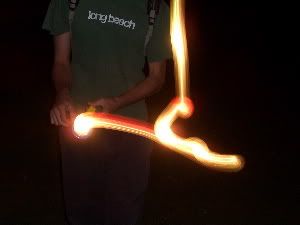Dear John,
Some more thoughts on Fugue State. I think I’m coming to it more on its own terms now, which I’ve found to be delightfully and quite dazzlingly musical and sculptural; just as if some of the poems were in/an ekphrasis of an imaginary scene (although there’s plenty of ‘real’ skin to go round), there is a music in/of the prosody and verse-forms here that simply hasn’t been invented yet. By way of example, selected fairly randomly from my underlinings: ‘liquifies injury in milk’s slurry’, ‘block aperture startle will prise open’ (a poetics, in that one), ‘a cockroach or angel / seize into life / and in like form shamble forward’, ‘in its suchlike folds does its lack self-devour / also?’ It rings with a cracked futural euphony, so that part- or whole-word repetitions make little dimensional cuts in the depth of the image-clusters; these in turn accumulate, so that the grammar of iterative accumulation, at this point near-virtuosic, is supported upon a whole relief network of stave-like emphases and indirect catchment areas for song fragment. It really is like reading nothing else, I can’t emphasise that enough.
Partly I hear the sheer depth of the surfaces here as in carefully practised defiance of contemporary depthlessness, for which there are a few ciphers scattered about, and also therefore in a kind of phenomenological defiance of the fascistic predilection for the myth-kitty and its all-too-surface readings, here nicely inverted via the concentration on poor, inverted Marsyas at the expense of any Olympic cheerleading. I stood in front of José de Ribera’s Apollo and Marsyas in Brussels last year and kept his face close by in my recollection as his skein was stretched across the kettle drums and sky. The real meat of the matter seems to lie in the phenomenology of reading which is a movement of mind pegged to a besieged cultural immortality against the immortality of any given Bezos reaching for the stars. The elegy for al-Asad would seem to confirm this. We end with ‘fleshing out senses’ gates, / chief inlets of soul’, as a way of referring to the experience we’ve just had but can’t yet name.
As ever, for this reader, those poems of exquisite compression and confluence rein me in the most and keep me bubbling away on the inside; ‘Actaeon’ is a recent favourite. Do the dioramic longer pseudo-narratives discourse upon what song is made of, what it should be made of, what it can be made of? Perhaps, then, the interludes in their very state as less-than the main events make more of a case for the former’s inherent poetics? I’m reaching for the stars a bit, here. So what is the poetics? On a couple of pages I’ve scribbled some notes towards them (viz., below): clearly the ethics of self-examination operates at the level of poetico-philosophical discourse, so that what’s at stake is nothing less than being: it would be difficult to maintain the chain-linked data-shards of imagery and iteration on a basis that is anything less than the ontological.
What we have access to is the architecture of the underworld. What we can make of it pierces through it, but only in the process of our endeavouring to do so, in song’s midst: it’s like learning to be and think as an infant, but without the possibility of the achievement of permanence on either side. I think this is why those openings and horizons and bridges of gaps are so fleeting, why ‘no iota escapes’, why the achievement of the book is partly the uncanniness of those repetitions both local and through-composed — from syllabic pointillism to the alpha and omega of white sand — in which you can hear the hors-texte pressing down or in or out (I suppose at this point we can’t be sure of the direction of travel), an external divination of the internal which is composition, which is chain-linked to the phenomenology of reading that you’ve recently returned to flesh-out in The Following.
The risks can be bluntly put, and they are familiar because I’m very familiar with them, having often tried to make my poems sing and sting in the same breath like yours: whether the density of the linguistic texture outweighs the subtlety of the endeavour; whether the iterative accumulation builds up to0 much and too quickly, so that it then can’t be leveraged or weaponised effectively; whether ‘being’ or ‘life’ become too unwieldy to have a purchase on anything except everything. On another note entirely, have you read Didier Anzieu’s The Skin Ego? I haven’t gone back to it but I’m guessing you must know it well, and I’d be interested to know if it had any bearing on the work. And anyway, here’s a note I wrote in the margin of ‘At Celaenae’ (though not necessarily in concert with that poem) that feels fairly fucking particular:
‘The book tries to define a fascist temporality or phenomenology, and to overcome it; the true universality is under the skin, i.e., a world of gaps and turmoil that must be sought out by reaching out of oneself, to engender it; the fascists are not only wrong, they are incorrect! They worship the smooth, the unified, the false.
‘It is an anti-fascist poetry by being pro-schist: the fascist is all surface.
‘The reading of the work tries harder than ever to turn the mental enunciation of words into a physical traversal of the mind’s tongue over the relief of the poetic object; the poem returns you to your failing body, not your triumphant mind.’
All best,


